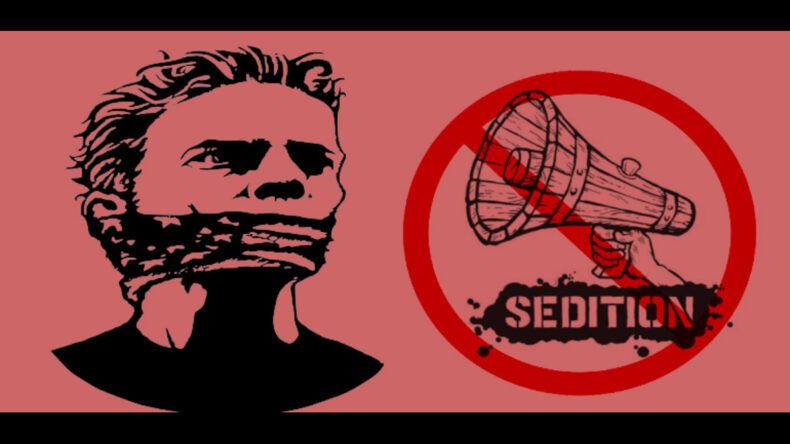According to the Indian Law Commission, the section of the Indian Penal Code (IPC) dealing with sedition laws should be kept. This argument appeared in a recent study. The group, according to a PTI report, suggests making a few changes to the statute so that its scope of application is more clear.
In its report to the government, the panel expressed serious concerns about the prospect of misuse of Section 124A. Therefore, it is suggested that the central government create model guidelines to prevent such misuse.
While it is important to establish certain procedural standards for restricting any misuse of Section 124A of the IPC dealing with sedition by law enforcement, the researchers concluded that any such allegations do not, by implication, justify a call for its removal. It is necessary to establish specific procedures, but there is no need to demand its abolition.
According to the Commission’s findings, the notion that sedition is a “colonial legacy” is not sufficient to justify abolishing it.
While laws like the Unlawful Activities (Prevention) Act and the National Security Act exist, the Law Commission noted in its report to Meghwal that these laws do not, by implication, cover all aspects of the crime described in Section 124A of the Indian Penal Code. The Law Commission incorporated this data in its report to Meghwal.
The study entitled “Usage of the Law of Sedition” claims that any speech that advocates violence against the government would be prosecuted under the more severe sections of the special laws and counter-terror legislation. In addition, the study states, “an expression that incites violence against the government would invariably be tried under the special laws and counter-terror legislation” if Section 124A of the Indian Penal Code did not exist.
The reality that the legal systems of different nations face different sets of circumstances was emphasized. In his cover letter, Justice Awasthi brought up the validity challenge to Section 124A which was heard by the Supreme Court.
The Supreme Court issued an order ordering the federal government and state governments not to file any First Information Report (FIR) or engage in any conduct that may be seen as coercive, in keeping with the recommendations that were previously made.
The court also issued an injunction to halt any ongoing investigations into violations of Indian Penal Code Section 124A. Furthermore, it demanded that all ongoing trials, appeals, and proceedings be halted until further notice.
The study confirmed the widespread belief that sedition is a legacy of colonial rule. Historically, sedition was a common charge leveled against Indian independence advocates during the period in which the crime was first codified.
While the Indian legal system has evolved through time, its core base is a result of its colonial legacy. The Indian police force and the idea of an All-India Civil Service are both ephemeral remnants of the British Raj.
Labeling a set of laws or an institution as “colonial” does not automatically render them obsolete. The fact that a law has colonial origins is not normative in and of itself. The panel concluded that the mere fact that a particular legal provision may be traced back to colonial times does not provide sufficient grounds for its repeal.
It was said that there are many examples of individuals misapplying the law to settle scores, especially when such disputes include personal rivalries or entrenched interests. In many prior decisions, the Supreme Court itself recognized this fact.
No reasonable argument has ever been made that these laws should be overturned because some people are abusing them. No such event has ever occurred before. The publication claims this is so because, for every person who has been wrongly victimized, ten others are in dire need of the protection such law may give.
Based on the findings, it seems that establishing legally sanctioned mechanisms and means to prevent the misuse of such laws is all that is required in such cases.
In a similar vein, the study emphasized that removing Section 124A of the IPC would have “serious adverse ramifications for the security and integrity of the country,” even if any claimed abuse of the provision might be reined in by putting down proper procedural safeguards. This is because allowing this would offer an open door to forces with nefarious intentions.
The home ministry sent the implementation of Section 124A to the Law Commission, and the latter was tasked with conducting an investigation and making amendment recommendations. The study stressed the importance of these duties. A letter containing this data was delivered to the Ministry of Law’s Department of Legal Affairs on March 29, 2016.













